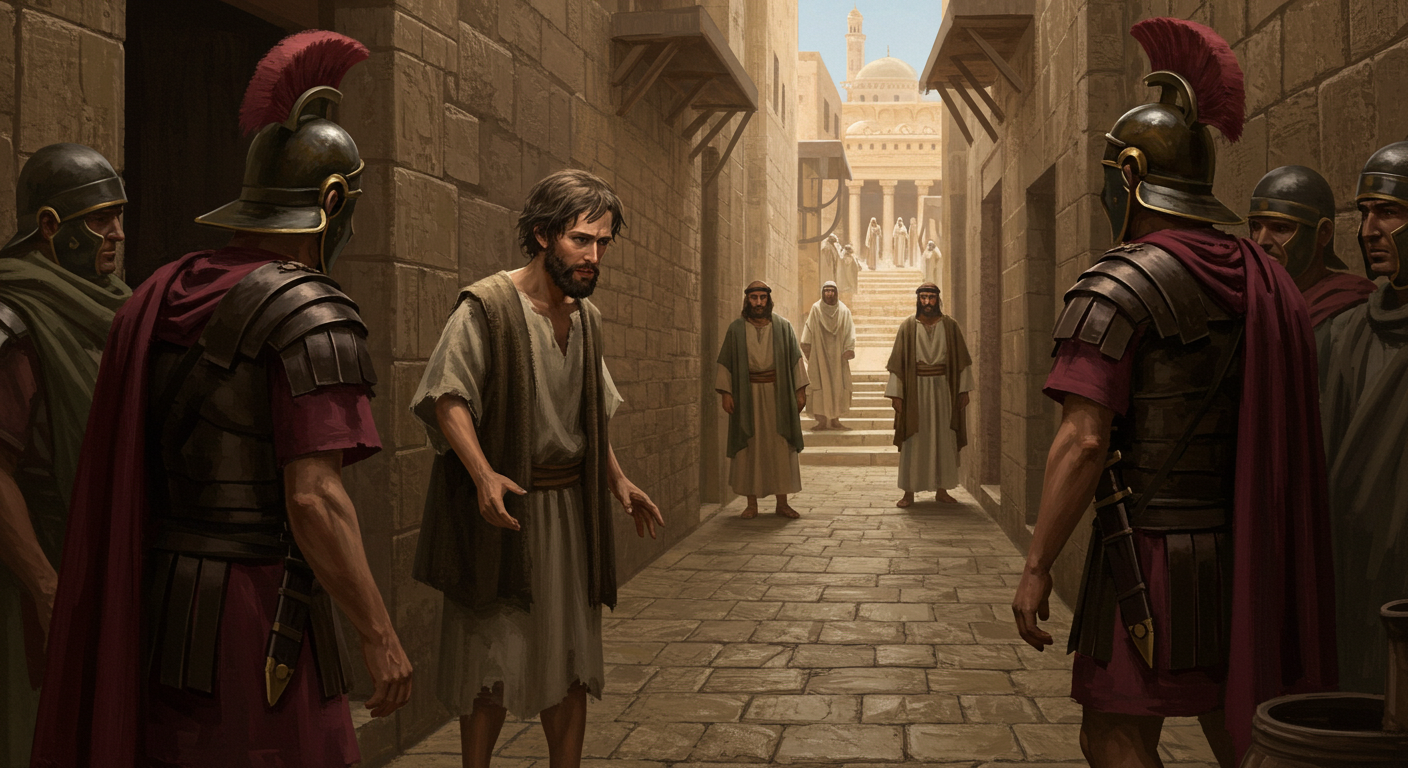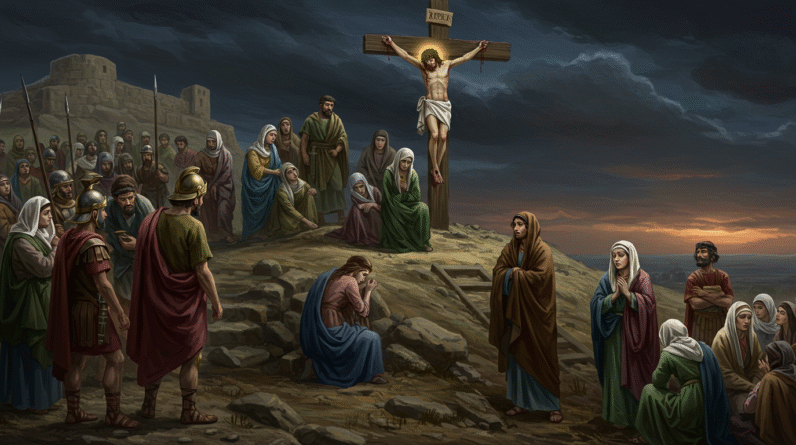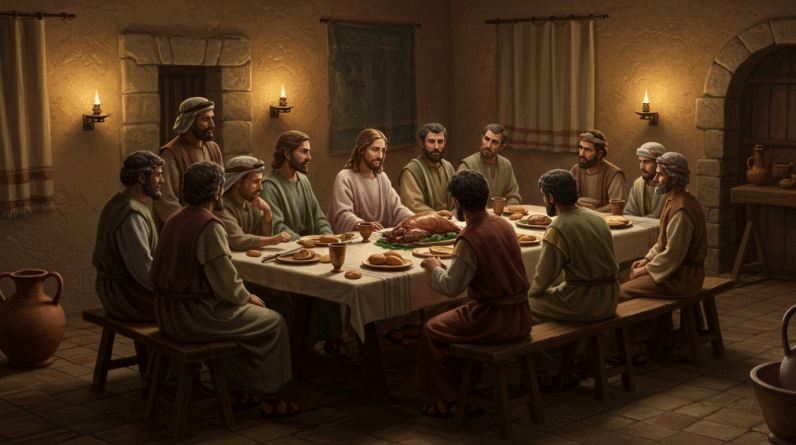Explore Holy Wednesday, a key moment in Holy Week reflecting on Judas’ betrayal, human nature, and redemption. Dive into its deep spiritual and historical layers.
😔Holy Wednesday (Spy Wednesday) (Judas Plans Betrayal – Matthew 26:14–16)
Introduction
Holy Week is a commemorative period that holds significant meaning within the Christian tradition. It’s a time marked by reflection and reverence, leading up to the profound moments of Jesus Christ’s death and resurrection on Easter Sunday. Holy Wednesday, also known as Spy Wednesday, is an often overlooked day during this pivotal week, yet it carries a story of profound betrayal and human weakness. This day reminds us of the complexities and dual nature of human relationships, even those closest to Jesus.
In this article, we delve into the events of Holy Wednesday through the lens of Judas Iscariot’s infamous betrayal. We’ll explore the multiple layers of the narrative, from its historical roots to its spiritual implications, and what it teaches us about faith, loyalty, and redemption. So, journey with me as we unpack the story told in Matthew 26:14–16, deciphering its significance and relevance to our lives today.
Biblical Context and Verse Reference
Matthew 26:14–16 (NIV)
“Then one of the Twelve—the one called Judas Iscariot—went to the chief priests and asked, ‘What are you willing to give me if I deliver him over to you?’ So they counted out for him thirty pieces of silver. From then on, Judas watched for an opportunity to hand him over.”
The simplicity of these verses belies the momentous impact of Judas’ decision. His question to the chief priests reveals an internal struggle and the foreshadowing of one of history’s most infamous acts of betrayal. As we peel back the layers of this narrative, we’ll reflect on what led to this pivotal moment and how it shaped the course of history.
Understanding Judas’s Motives
Judas Iscariot is one of the most enigmatic figures in the New Testament. While the Bible does not provide exhaustive explanations for Judas’s motives, several theories abound. Some suggest that Judas was motivated by greed, given his role as the treasurer among the disciples and his subsequent financial gain from the betrayal. Thirty pieces of silver, while not a princely sum, were significant enough to symbolize the weight of his actions.
Others speculate that Judas’ actions were driven by disillusionment. Perhaps he expected Jesus to rise as a political liberator, and his failure to do so might have instilled a sense of disappointment. It is also conceivable that Judas felt caught in a moment of weakness—a reminder that even those closest to greatness can falter.
The Role of Free Will and Prophecy
Judas’ betrayal is an inflection point where free will and divine prophecy intersect. It’s a compelling testament to the complexity of human choice within the divine plan. Many theologians debate whether Judas acted purely out of free volition or as a fulfillment of biblical prophecy. Scriptures such as John 17:12 suggest that Judas’ actions were foreseen; yet, does this absolve him of responsibility?
The interplay between destiny and choice is one that resonates with many believers today. How much of our lives are shaped by divine will versus our personal decisions? Holy Wednesday offers an opportunity to ponder these timeless questions and reflect on our own choices.
The Symbolism of Thirty Pieces of Silver
The currency form of Judas’ betrayal has become a powerful symbol of treachery throughout history. Thirty pieces of silver was not an arbitrary sum, nor was it considered a path to wealth. In Zechariah 11:12–13, the same value is associated with contempt: casting the silver into the potter’s field, reinforcing the notion of dismissal and derision.
In our modern-day context, “thirty pieces of silver” can symbolize the high cost of ethical compromise. It’s a reminder that decisions driven by short-term gain often come with a enduring cost. The phrase encourages us to weigh our choices and remain steadfast to our values.
The Chief Priest’s Role
While Judas often bears the brunt of castigation for his betrayal, the chief priests’ role cannot be overlooked. They represent the leaders and authorities who were threatened by Jesus’s growing influence. In their eagerness to preserve power and position, they were willing to engage in corrupt practices to bring about the downfall of an innocent man.
Their actions are a reminder for us today to question how power and positions of authority can sometimes lead to moral compromise. As we reflect on Spy Wednesday, we can look inward to evaluate how we ourselves uphold truth and justice in our own spheres of influence.

Reflections on Human Nature
If there’s one thing the story of Spy Wednesday teaches, it’s that human nature is complex, often shrouded in ambiguity and susceptibility to both good and ill intents. Judas, despite the ignominy attached to his name, was fundamentally human—susceptible to temptation, doubt, and fear. His actions are a sobering reminder of our vulnerabilities to fall short of our ideals.
Holy Wednesday encourages reflection on our imperfections and shortcomings. It begs the question: how often do we betray our own values or those closest to us, knowingly or unknowingly? It’s a day for honest introspection and a recommitment to faithfulness in our actions and relationships.
Redemption and Forgiveness
While Judas’ betrayal is a tale often recounted with condemnation, it also offers lessons on the themes of redemption and forgiveness. It serves as a precursor to the ultimate act of forgiveness that would unfold on Good Friday. Jesus’ crucifixion and resurrection embody the boundless grace and redemption offered to all, regardless of the gravitas of our transgressions.
For believers, Holy Wednesday holds the promise of redemption. It’s a chance to embrace forgiveness, letting go of past grievances and seeking reconciliation. This day stands as a poignant reminder of the power of grace and the perpetual offer of redemption.
Applying Lessons from Holy Wednesday Today
Humankind has evolved in many ways since the time of Jesus, yet the lessons derived from Holy Wednesday remain ever-relevant. In our fast-paced world, betrayal and compromise are often romanticized as strategic moves. However, Spy Wednesday encourages us to reconsider such norms.
Take a moment to reflect on relationships, values, and integrity. How often do we sacrifice the long-term for immediate gratification? This day calls on us to value trust and authenticity and be vigilant against the temptation to stray from our ethical paths.
Conclusion
Holy Wednesday, or Spy Wednesday, is a testament to the complexities of human relationships and the perennial struggle between good and evil, fidelity and betrayal. Through Judas’ actions, we are reminded of our limitations and the need for mercy, redemption, and introspection.
This Holy Wednesday, let us reflect on the implications of Judas’ betrayal and strive to embody the principles of loyalty and integrity in our lives. Remember, in every act of treachery, there lies an opportunity for redemption—a chance to right our wrongs and walk a path illuminated by grace.
As a ClickBank Affiliate, I earn from qualifying purchases.
Acknowledgment: All Bible verses referenced in this article were accessed via Bible Gateway (or Bible Hub).
“Want to explore more? Check out our latest post on Why Jesus? and discover the life-changing truth of the Gospel!”








